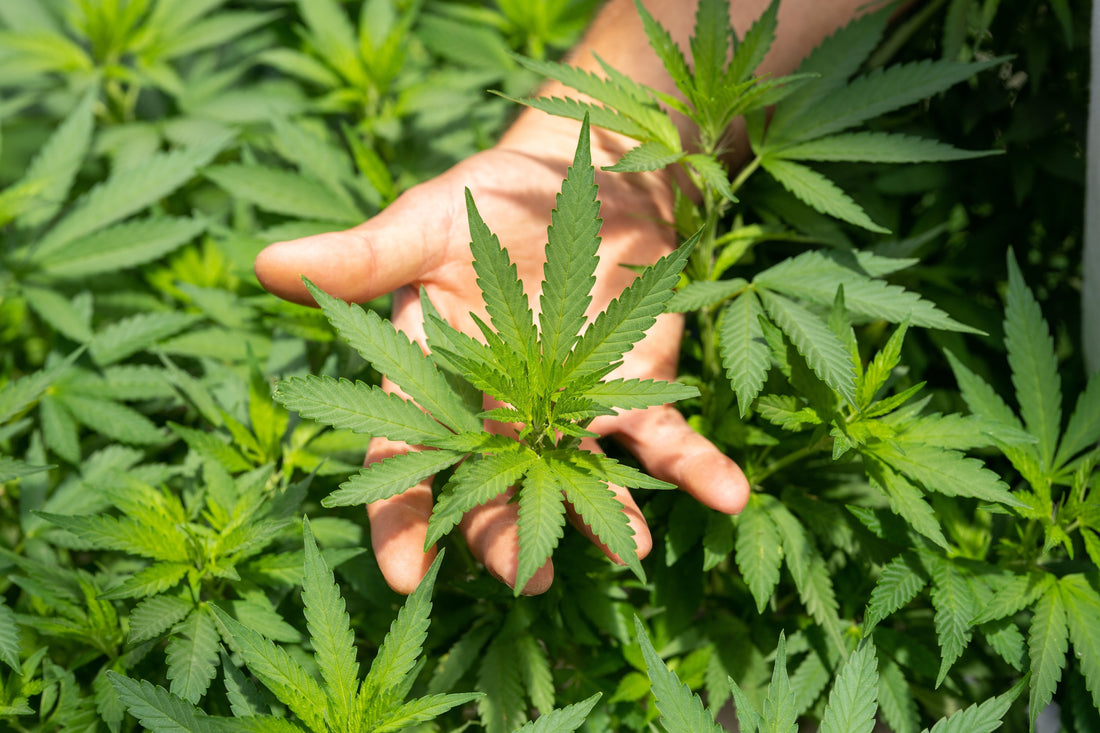As more states legalize marijuana for both medical and recreational use, many people wonder if it is dangerous for their dogs. In order to answer that question, we need to educate ourselves on what exactly marijuana is, and what is THC vs CBD.
How is Marijuana Different from Hemp?
To put it simply, marijuana and hemp are just two different strains of the Cannabis plant.
They both contain the cannabinoids, CBD (cannabidiol) and THC (tetrahydrocannabinol).
However, marijuana contains much higher levels of THC, while hemp has much more CBD.
What's the Difference Between THC and CBD?
THC is the chemical found in marijuana that produces the “high” effect.
CBD is found in hemp, which contains trace amounts of THC, and thus does not produce the “high” associated with THC.

Is Marijuana Bad for Dogs?
When it comes to dogs and marijuana, a very common question is, “Can it hurt my dog?”
The short answer is, yes. Cannabis intoxication from marijuana can be dangerous, and even life-threatening.
Side effects and symptoms of unintended marijuana ingestion include:
- Lethargy
- Excessive drooling
- Vomiting
- Balance issues
- Dilated pupil
- Agitation or restlessness
- Whining and/or barking
- Incontinence
- Slow breathing
- Low blood pressure
- Irregular or rapid heart rate
- Tremors
- Seizures
- Coma

Help! My Dog Ate My Marijuana, What Should I Do?
- Call your Vet. Although small amounts of marijuana may produce minor symptoms, it is still important to consult your vet for advice. And keep in mind, whether a substance is legal or illegal, veterinarians do not report to the authorities.
- Closely observe your dog as long as it takes until symptoms wear off.
- Most likely, your dog will be in some discomfort and distress. They may exhibit signs of disorientation, so keeping them as comfortable as possible is important. A dark quiet room free of action is best. This will help to keep your dog’s stress and anxiety down. It’s also important because a dog having balance issues is can easily injure themselves by bumping into things or falling.
- Make sure to provide them with plenty of water. Keeping your dog hydrated will aid in easing symptoms as well as speed up their recovery.
- If you observe signs of worsening symptoms, such as tremors or seizures, it has now become a life-threatening emergency, Seizures can quickly lead to coma, and even death, so you need to get medical attention for your dog immediately.
An additional resource for suspected marijuana poisoning is the ASPCA Animal Poison Control Hotline.
The ASPCA Poison Control Center is staffed 24 hours with veterinary health professionals who have been specially trained in veterinary toxicology. If you think that your pet may have ingested marijuana, or any other potentially poisonous substance, call the ASPCA 24 hour emergency Animal Poison Control Center hotline at 888-426-4435.
Is CBD Good for Dogs?
Yes!
CBD, (derived from the hemp plant) has been proven to be very beneficial in both people and animals.
Hemp (CBD) is used in dogs to alleviate a variety of different health issues including:
Stress and anxiety: Our THC free Hemp Calming soft chews support relaxation and emotional balance in dogs experiencing temporary periods of high anxiety or stress, such as car travel or thunderstorms.
Joint Pain: Our Hemp Joint soft chews are THC free, and recommended for discomfort associated with everyday activities and exercise. They can aid in reducing pain and inflammation from stiff joints and arthritis, while helping to promote healthy joint mobility.

CBD from Hemp can also aid in digestion, seizure control, and many believe it’s beneficial for heart health, and may even contain cancer fighting properties.
In conclusion, while hemp can be very beneficial for dogs, marijuana is not!
So, keep your pup safe by always storing any drugs or other potentially dangerous products far out of reach, and if they do accidentally ingest marijuana, consult your vet right away.
Related Articles
Products related to this article:
Every Sale Supports a Shelter Pet. Learn More.
Made in Vermont. Learn More.
If you suspect your pet is sick, call your vet immediately. For health-related questions, always consult your veterinarian, as they have examined your pet, know the pet's health history, and can make the best recommendations for your pet.




